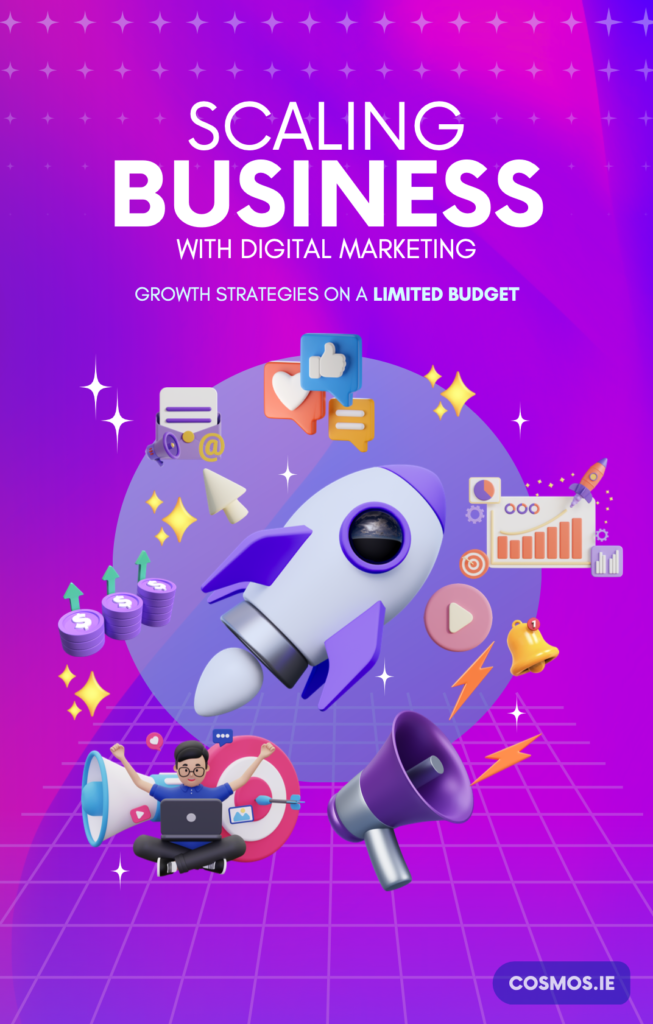In the dynamic landscape of evolving technology and AI advancements, it is important for companies to know social media marketing tips to connect with their potential clientele and customers. This connectivity opens expansive avenues, akin to a boundless ocean of possibilities, particularly within the realm of social media innovation. However, amidst this wealth of opportunity, the pressure to continually forge new paths in the social media sphere and maintain a competitive edge can prove formidable and intellectually taxing.
Consequently, understanding the intricate nuances, best practices, and the fundamental intricacies becomes pivotal for small businesses and marketing professionals alike. Delving into the depths of these strategies not only aids in navigating the complexities of social media but also empowers them to effectively promote their campaigns with finesse and acumen.
With the ever-growing popularity of social media platforms, it’s essential to stay ahead of the curve and implement the latest best practices to ensure your brand stands out. This article by Cosmos helps you explore some of the most effective strategies for social media marketing success.
- Social Media Marketing Strategies to follow:
- 1. Defining your Content Strategy
- 2. Mastering the Art of Engagement
- 3. Targeting the Right Audience
- 4. Establishing an Effective Posting Schedule
- 5. Tracking your Performance with Analytics
- 6. Maintaining a Consistent brand
- 7. Embracing the Power of Visual Content
- 8. Using Hashtags Wisely
- 9. Collaborating with Influencers
- 10. Providing Excellent Customer Service on Social Media
- Conclusion
- FAQS
Social Media Marketing Strategies to follow:
1. Defining your Content Strategy
A well-defined content strategy is the foundation of any successful social media marketing campaign. Start by identifying your target audience and their interests, and create a mix of promotional, informational, and entertaining content that appeals to them. Whether you are a small business, or a special media marketing agency, the very first step is to have a content strategy. Remember, the goal is to provide value and foster engagement, so be sure to strike the right balance between promotional and non-promotional content.
2. Mastering the Art of Engagement

Making it a priority to interact with your followers by responding to comments, asking questions, and initiating conversation as engagement is the key to building strong relationships with your audience on social media. Show your audience that you value their input and are genuinely interested in what they have to say.
3. Targeting the Right Audience
To maximise the impact of your social media marketing efforts, it’s essential to target the right audience . Conduct research to determine which platforms your ideal customers frequent and focus your efforts on those channels. Additionally, utilise the targeting features offered by social media advertising platforms to reach the most relevant users.
4. Establishing an Effective Posting Schedule
Consistency is crucial when it comes to social media marketing. Establish a regular posting schedule that aligns with your audience’s preferences and stick to it. Experiment with different posting times and frequencies to find the sweet spot that drives the most engagement and results. As a social media agency, it is better to have templates and a social media content calendar.
5. Tracking your Performance with Analytics

Continuously monitoring your social media performance is an indispensable aspect of refining strategies and maximising success in the ever-evolving digital landscape. Leveraging robust analytics tools allows you to delve into a plethora of metrics, including but not limited to engagement rates, audience reach, conversion statistics, demographic insights, and content effectiveness.
By consistently analyzing these metrics, you gain actionable insights to fine-tune your approach, experiment with various content formats, optimize posting schedules, and tailor campaigns to resonate deeply with your audience. This iterative process not only aids in immediate refinements but also fosters a culture of continuous improvement, enabling sustained growth and relevance in the competitive realm of social media marketing.

E-Book: SCALING BUSINESS
WITH DIGITAL MARKETING
GROWTH STRATEGIES ON A LIMITED BUDGET
- Gain an edge with our eBook
- Your quick guide to digital excellence
6. Maintaining a Consistent brand
A consistent brand voice helps create a cohesive and memorable identity across your social media platforms. Develop a unique tone and style that reflects your brand’s personality, and ensure all your content aligns with this voice. This will help your audience connect with your brand on a deeper level.
7. Embracing the Power of Visual Content
Enhancing your social media impact involves skillfully incorporating visuals that captivate your audience’s attention and fuel engagement. Introducing compelling images, engaging videos, and lively graphics into your content mix not only bolsters the potency of your message but also significantly heightens its potential for widespread sharing among your audience.
8. Using Hashtags Wisely
Employing hashtags effectively amplifies content visibility and draws in new followers. Explore prevalent and pertinent hashtags within your industry and integrate them into your posts. Yet, exercise caution against an excess of hashtags, which might overshadow your message and give a spam-like impression.
9. Collaborating with Influencers
Influencer marketing can be an effective way to amplify your brand’s reach and credibility on social media. Identify influencers within your niche who share your target audience and values, and collaborate with them on sponsored posts, product reviews, or giveaways. This can help you tap into new audiences and boost your brand’s reputation.
10. Providing Excellent Customer Service on Social Media

Captivating your audience and driving engagement on social media necessitates the strategic integration of visually compelling content. By infusing your content mix with arresting images, immersive videos, and vibrant graphics, you elevate the impact of your message, amplifying its potential for widespread sharing among your audience.
Conclusion
By implementing these best practices for social media marketing, you’ll be well on your way to building a strong and engaged online community around your brand. From defining your content strategy to mastering engagement and collaborating with influencers, each of these strategies plays a crucial role in ensuring your social media marketing success.
And if still you find yourself stuck, remember a social media marketing agency is all you need, and tune in to Cosmos for it!
FAQS
1. What are some common social media marketing strategies?
Common social media marketing strategies include content creation, engagement with followers, influencer partnerships, paid advertising, and analytics-driven optimization.
2. What are the 5 C’s of Social Media Strategy?
The 5 C’s of social media strategy are Content (creation and curation), Context (understanding the platform and audience), Connection (engagement with the audience), Community (building a loyal follower base), and Conversion (turning engagement into desired actions).
3. What are the 5 P’s of Social Media Marketing?
The 5 P’s of social media marketing encompass Product (highlighting offerings), Price (considering promotions and discounts), Place (choosing platforms wisely), Promotion (strategizing content promotion), and People (target audience understanding).
4. What are the 4 E’s of Social Media Marketing?
The 4 E’s of social media marketing are Engage (interacting with the audience), Educate (providing valuable information), Excite (creating enthusiasm), and Empower (enabling audience action).
5. What are the 8 Principles of Social Marketing?
The 8 principles of social marketing are Customer Orientation (focus on audience needs), Behavior Change (influence audience actions), Theory-Based (rooted in behavioral theories), Insight-Driven (understand audience motivations), Exchange (offering value), Competition (consider other options), Segmentation (understand diverse audience segments), and Tailoring (customizing messages).
6. What are the 6 Steps of Social Media Marketing?
The 6 steps of social media marketing involve Setting Goals, Understanding the Audience, Content Creation and Curation, Deployment and Scheduling, Engagement and Interaction, and Analysis and Optimization.
7. What are the 3 main components of social marketing?
The 3 main components of social marketing are Audience, Behavior, and Channels. Audience refers to the specific group being targeted, Behavior focuses on the desired change in actions or habits, and Channels are the platforms used to reach and engage the audience.
